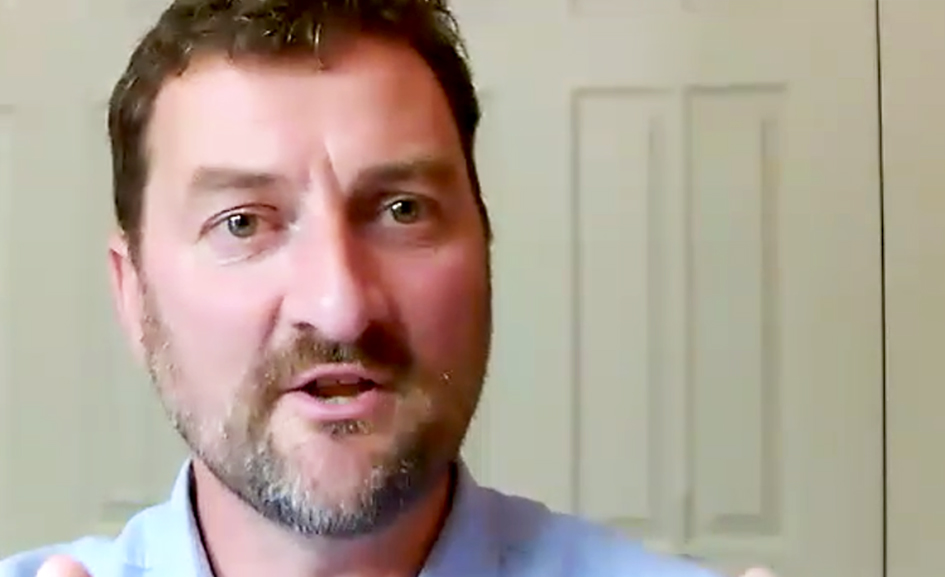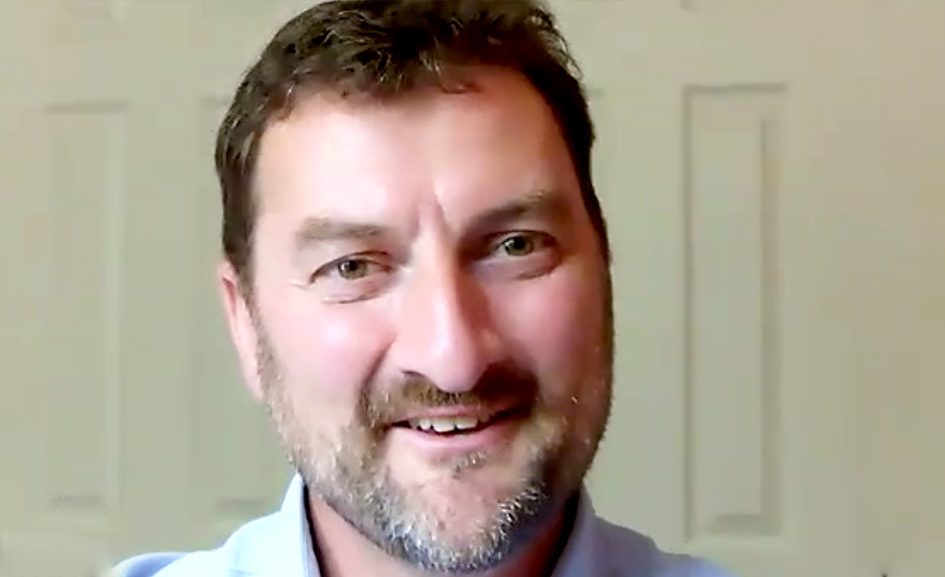He spoke to us about his approach to his consultations and how he believes technology such as the CUE1 Device can help people with Parkinson’s.
Building relationships
Dr Schramm’s speech is coloured with anecdotes, demonstrating the lasting effect that the people he sees have in his memory.
From what he tells us about the way he builds relationships with his patients, it is clear why he is able to remember each one so vividly. Rather than solely relying on his medical knowledge of the disease to prescribe medications, he emphasises the importance of considering this in parallel with the patient’s beliefs and motivations. “You need to figure out who the patient is and not just the illness in order to optimise treatment”. He works with his patients to find out the true reason they have come in; they can tell him their symptoms but he needs to know what their priorities are in order to match the treatment. He tells us that he wants his patients to regard him more as a resource to manage their illness than as someone to manage their illness for them. He strives for a collaborative effort, as they are there with their symptoms all the time and he is not.
Consultations are a form of therapy
Dr Schramm’s years of experience have provided him with an understanding of the sense of passivity that neurodegenerative disorders can cause. He recognises that many will feel a loss of control and his compassion is clear. Knowing that how you mentally and psychologically approach the disease can affect your outcome, Dr Schramm views his consultations as “a mini form of therapy”. He considers it his job to help people manage their relationship with the disease; without disregarding “the unpleasant stuff”, he tries to help people to develop the ability to think positively and “go looking for the fulfilling life that is out there waiting for them to find”. His commitment to improving the quality of life of the people with Parkinson’s that he sees resounds in us.
Dr Schramm goes on to explain the importance of having confidence in oneself; if you have a positive attitude and a sense of belief you will find that you are able to achieve things, physically, that you didn’t think you could. Crucial to this is to try to be open with yourself and not hide that you are living with Parkinson’s, which he unfortunately recognises can be hindered by the stigma around disease. Fearlessness pays dividends and Dr Schramm knows that this is no easy task. As he says, “Society needs to be good at applauding people doing the best that they can”.

Medications can be complicated
Another major challenge for people with Parkinson’s that Dr Schramm mentions is the often complex dosing regimens. Individuals will need a unique combination of medications and, as the disease progresses and requirements change, the doses and timing of medications may need to be altered. Dr Schramm tells us that with Parkinson’s, any change you make can take a long time to show an effect, so “not changing too many things at a time is important; it’s a really big lesson I learnt when looking after Parkinson’s patients who were admitted to hospital”. Another key lesson he learnt is that the time medication is taken is crucial to its effect, and when people are taking numerous different drugs, many times a day, this can be very complicated.
This is something that Dr Schramm feels the CUE1 Device could help with. The device contains an alarm which provides a gentle vibration as a reminder to take medication. It is set up through a smart phone app, meaning that it can be easily changed if the timing of medication is altered.

Qualitative approach is key
Dr Schramm’s consultations start when he goes to collect his patients from the waiting room. He prefers this to calling their name over the Tannoy as it allows for the informal relationship, which is so important in his work, to be built. It also provides an opportunity to assess how a person stands up and walks while they are relaxed, rather than asking them to “perform” once in his consulting room. Although Dr Schramm is aware of the usefulness of objective measurements for assessing the disease progression, what he cares more about is how the patient feels and can function in important tasks, such as standing up and walking.
He explains that a qualitative approach is essential; what matters to him is addressing a person’s concerns about their abilities, not how able they are according to a quantitative score. Dr Schramm notes that the patient-controlled nature of the CUE1 Device will be beneficial for this purpose, as having a something which acts on the disease activity in a certain moment of time is a “gloriously enabling thing”. He adds that the psychological benefit of this is “huge”.
Dr Schramm’s attitude towards the people he sees is truly inspiring. He put it simply, saying, “it’s about recognising that you’re working with a person and not an illness”. One of our main philosophies is to make a device for people with Parkinson’s, with people with Parkinson’s, and we are relieved to know that professionals in general practice share our values.
Author Gaby Richter